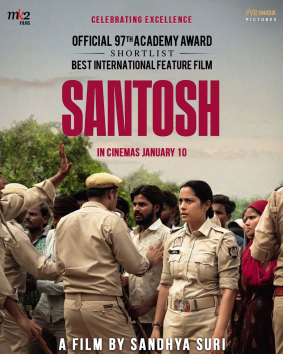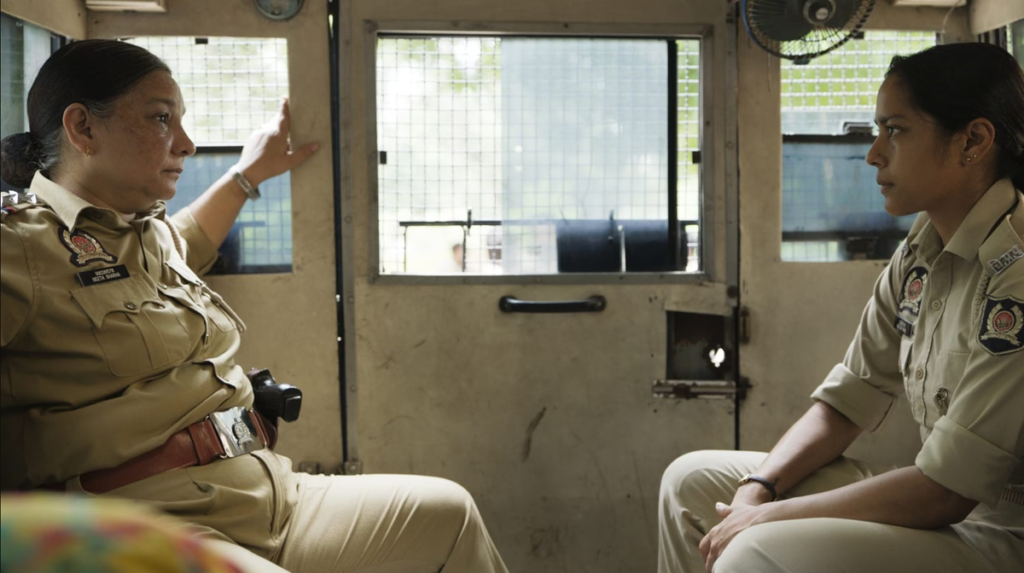
When a film dares to confront societal structures and challenges the status quo, it often walks a perilous line in countries where cinema remains tightly interwoven with political and cultural sensitivities. Sandhya Suri’s compelling feature Santosh, starring Shahana Goswami, finds itself at this precarious intersection. A poignant, layered drama that was lauded at the Cannes Film Festival and selected in the Un Certain Regard section, Santosh is now at the center of a censorship storm in India.
The film follows Santosh, a Dalit widow who is appointed as a police constable on compassionate grounds following her husband’s death in the line of duty. As she navigates a male-dominated, caste-biased system, she’s mentored by a female superior, played by Sunita Rajwar. Their journey together unfolds against the backdrop of a murder investigation, forcing Santosh to grapple with her internalized prejudices and the crushing realities of institutional oppression.
Shahana Goswami delivers a hauntingly restrained performance as the titular character. Her portrayal has been praised as one of her career bests, giving voice to an often-silenced demographic. Sandhya Suri, a British-Indian filmmaker known for her incisive storytelling, crafts a world that is both intimately personal and deeply political. With minimalistic yet powerful imagery, Santosh serves as a mirror to contemporary India’s sociopolitical landscape.

However, this mirror appears to be too unflinching for the Central Board of Film Certification (CBFC). As reported by Business Standard and The Hindu, the film has been denied theatrical release certification in India, allegedly due to its depiction of police misconduct and caste dynamics. The decision has sparked outrage among cinephiles and free speech advocates alike. The filmmaker and producers are currently pursuing an appeal.
In a video interview, Goswami expresses both pride and disappointment. “We didn’t set out to make a film that shocks,” she says, “but one that tells the truth.” Indeed, it is this very honesty that seems to have unsettled the gatekeepers of Indian cinema.
The situation echoes a troubling trend: films that challenge dominant narratives—especially around caste, gender, and power—often face the brunt of institutional censorship. While global platforms and festivals celebrate such work, domestic audiences are routinely denied the opportunity to engage with these stories.
This act of silencing is particularly poignant given Santosh‘s message: the journey of a woman learning to unlearn systemic biases and confront uncomfortable truths. It is not just Santosh the character who is being muted, but also what she represents—a possibility of change from within the system.
Despite the ban, the film continues to resonate internationally. The censorship saga has inadvertently amplified its voice, drawing attention to the very issues it seeks to highlight. Whether or not Indian audiences get to see Santosh in theatres, the conversations it has ignited will hopefully persist, pushing the needle toward a more open and courageous cinema culture.
Santosh is more than a film. It is a statement. And statements, once made, are hard to erase.


























